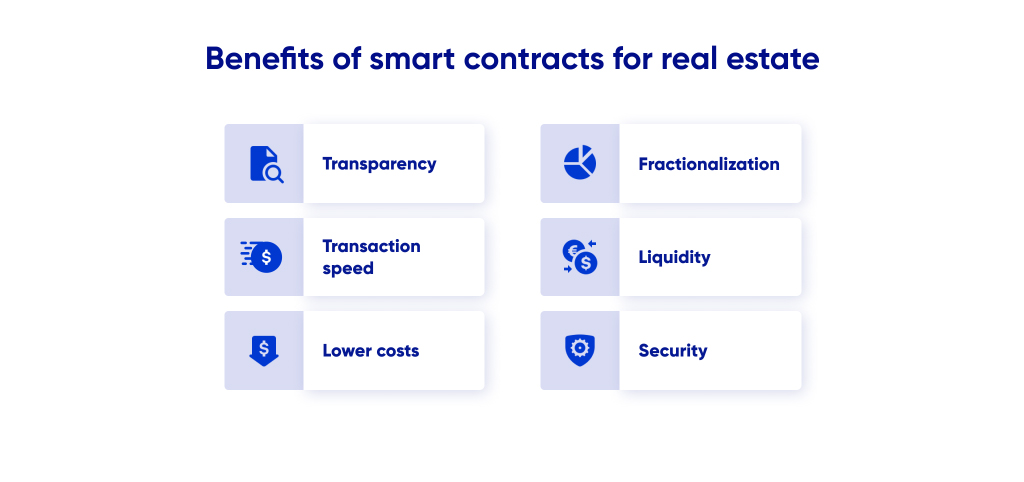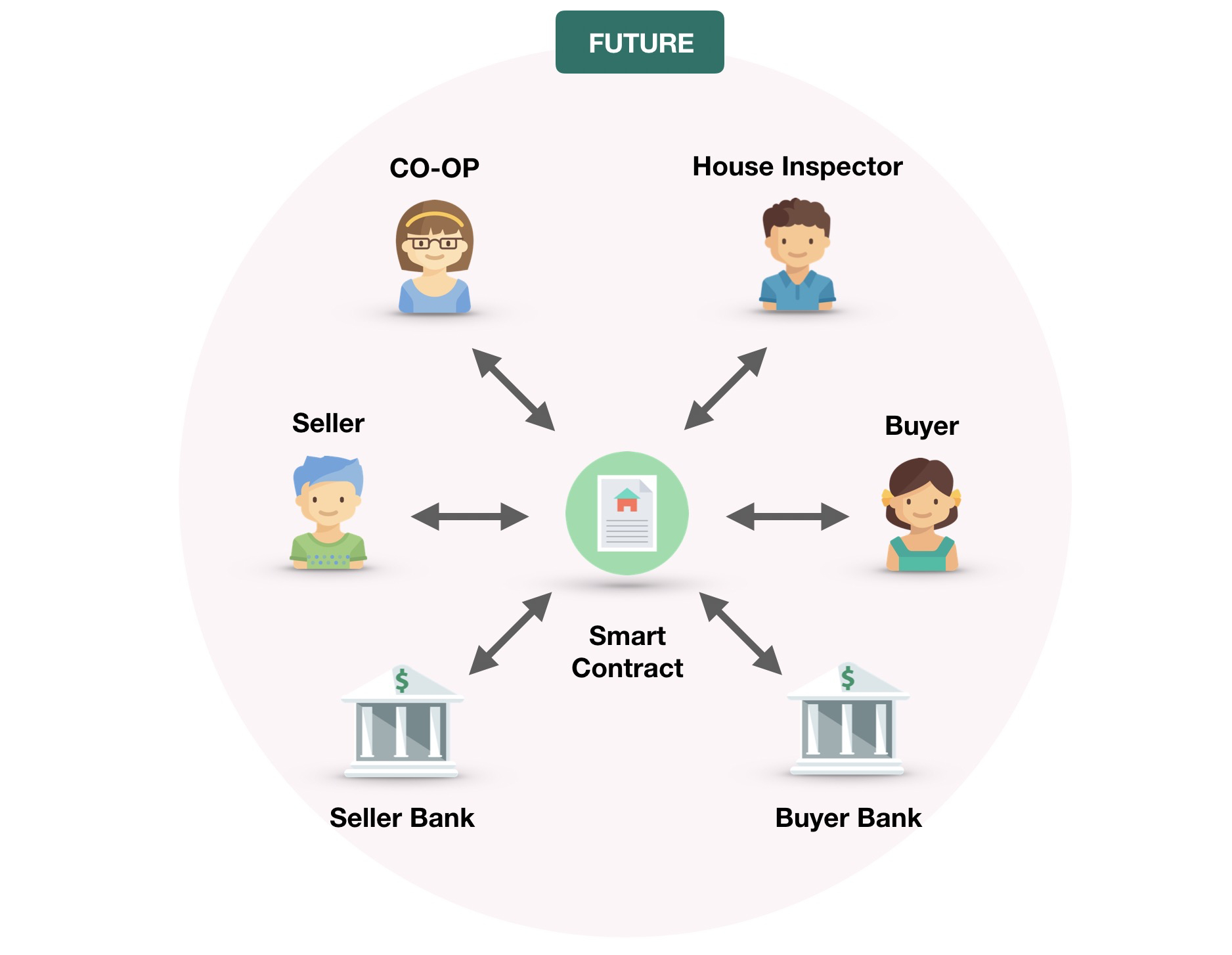Revolutionizing Real Estate Speed & Functionality with Ethereum Smart Contracts.
Introduction
Ethereum Smart Contracts are digital programs that run on the Ethereum blockchain. They are self-executing contracts with the terms of the agreement between buyer and seller being directly written into lines of code. These contracts allow for secure and transparent transactions without the need for intermediaries, such as banks or lawyers. In the real estate industry, Ethereum Smart Contracts have the potential to revolutionize the speed and functionality of transactions, making them faster, cheaper, and more efficient.
The Benefits of Using Ethereum Smart Contracts for Property Transactions

The real estate industry has been around for centuries, and while it has evolved over time, it still faces many challenges. One of the biggest challenges is the slow and cumbersome process of property transactions. However, with the advent of blockchain technology, specifically Ethereum smart contracts, the real estate industry is poised for a revolution.
Ethereum smart contracts are self-executing contracts with the terms of the agreement between buyer and seller being directly written into lines of code. These contracts are stored on the Ethereum blockchain, which is a decentralized, distributed ledger that records transactions across a network of computers. This means that once a smart contract is created, it cannot be altered or tampered with, providing a high level of security and transparency.
One of the biggest benefits of using Ethereum smart contracts for property transactions is the speed at which they can be executed. Traditional property transactions can take weeks or even months to complete, with multiple parties involved in the process. With smart contracts, the entire process can be automated, reducing the time it takes to complete a transaction to just a few days.
Another benefit of using Ethereum smart contracts is the reduction in costs associated with property transactions. Traditional property transactions involve multiple intermediaries, such as real estate agents, lawyers, and banks, all of whom charge fees for their services. With smart contracts, these intermediaries can be eliminated, reducing the overall cost of the transaction.
Smart contracts also provide a high level of transparency and security. All parties involved in the transaction can view the terms of the contract, ensuring that everyone is on the same page. Additionally, because the contract is stored on the blockchain, it cannot be altered or tampered with, providing a high level of security.
One of the most exciting aspects of Ethereum smart contracts is their ability to automate certain aspects of property transactions. For example, smart contracts can be programmed to release funds once certain conditions are met, such as the completion of a home inspection or the transfer of ownership. This automation not only speeds up the transaction process but also reduces the risk of fraud.
Smart contracts also have the potential to revolutionize the way property ownership is recorded. Currently, property ownership is recorded on paper documents, which can be lost or destroyed. With smart contracts, ownership can be recorded on the blockchain, providing a permanent and tamper-proof record of ownership.
In addition to these benefits, Ethereum smart contracts also have the potential to make property transactions more accessible to a wider range of people. Currently, property transactions require a significant amount of capital, making it difficult for many people to enter the market. With smart contracts, fractional ownership can be easily facilitated, allowing people to invest in property with smaller amounts of capital.
In conclusion, Ethereum smart contracts have the potential to revolutionize the real estate industry by providing a faster, more efficient, and more secure way to conduct property transactions. By eliminating intermediaries, reducing costs, and automating certain aspects of the transaction process, smart contracts can make property ownership more accessible to a wider range of people. As the technology continues to evolve, it will be exciting to see how it will continue to impact the real estate industry.
Maximizing Efficiency and Transparency with Ethereum Smart Contracts in Real Estate

The real estate industry has always been known for its slow and cumbersome processes. From property listings to closing deals, the entire process can take weeks or even months to complete. However, with the advent of blockchain technology, the industry is undergoing a significant transformation. One of the most promising applications of blockchain technology in real estate is the use of Ethereum smart contracts.
Ethereum is a decentralized blockchain platform that enables the creation of smart contracts. Smart contracts are self-executing contracts with the terms of the agreement between buyer and seller being directly written into lines of code. These contracts are stored on the blockchain, making them immutable and transparent. This means that once a smart contract is created, it cannot be altered or tampered with, and all parties involved can view the contract’s terms and conditions.
The use of Ethereum smart contracts in real estate can revolutionize the industry by maximizing efficiency and transparency. One of the most significant benefits of using smart contracts is the speed at which transactions can be completed. Traditional real estate transactions involve multiple intermediaries, such as real estate agents, lawyers, and banks, which can slow down the process. With smart contracts, all parties involved can interact directly with each other, eliminating the need for intermediaries and reducing the time it takes to complete a transaction.
Smart contracts can also increase transparency in real estate transactions. The terms of the contract are written in code and stored on the blockchain, making them accessible to all parties involved. This eliminates the need for trust between parties, as the contract’s terms are automatically enforced by the blockchain. This increased transparency can also reduce the risk of fraud and errors in real estate transactions.
Another benefit of using Ethereum smart contracts in real estate is the ability to automate certain processes. For example, smart contracts can be programmed to release funds once certain conditions are met, such as the completion of a property inspection or the transfer of ownership. This automation can reduce the need for manual intervention, further increasing efficiency and reducing the risk of errors.
Smart contracts can also be used to streamline the property listing process. With traditional real estate listings, property information is often scattered across multiple platforms, making it difficult for buyers to find the information they need. With smart contracts, property information can be stored on the blockchain, making it easily accessible to potential buyers. This can reduce the time it takes to find a buyer and increase the likelihood of a successful sale.
In conclusion, Ethereum smart contracts have the potential to revolutionize the real estate industry by maximizing efficiency and transparency. By eliminating intermediaries, increasing transparency, automating processes, and streamlining property listings, smart contracts can significantly reduce the time and cost associated with real estate transactions. As blockchain technology continues to evolve, it is likely that we will see even more innovative applications of smart contracts in real estate and other industries.
The Future of Real Estate Automation: Ethereum Smart Contracts and Decentralized Applications

The real estate industry has always been known for its slow and cumbersome processes. From buying and selling properties to managing leases and rental agreements, the industry has been plagued with inefficiencies that have made it difficult for both buyers and sellers to transact quickly and efficiently. However, with the advent of blockchain technology and smart contracts, the real estate industry is poised for a major transformation.
One of the most promising applications of blockchain technology in real estate is the use of Ethereum smart contracts. Ethereum is a decentralized platform that allows developers to build decentralized applications (DApps) using smart contracts. Smart contracts are self-executing contracts with the terms of the agreement between buyer and seller being directly written into lines of code. The code and the agreements contained therein exist on a decentralized blockchain network, which means that they are immutable and cannot be altered once they are deployed.
The use of Ethereum smart contracts in real estate has the potential to revolutionize the industry by streamlining processes and reducing the need for intermediaries. For example, the process of buying and selling a property can be simplified by using a smart contract that automatically executes the transfer of ownership once the agreed-upon conditions are met. This eliminates the need for a title company or other intermediary to facilitate the transaction, which can save both time and money.
Another area where Ethereum smart contracts can be used in real estate is in the management of rental agreements. Smart contracts can be used to automate the process of rent collection, ensuring that payments are made on time and reducing the need for landlords to chase down late payments. They can also be used to automatically renew leases or terminate them if certain conditions are not met, such as failure to pay rent or damage to the property.
One of the key benefits of using Ethereum smart contracts in real estate is the increased speed and efficiency that they offer. Because the contracts are self-executing and do not require intermediaries, transactions can be completed much more quickly than traditional methods. This can be especially beneficial in hot real estate markets where properties can sell quickly and buyers need to move fast to secure a deal.
In addition to speed, Ethereum smart contracts also offer increased security and transparency. Because the contracts are stored on a decentralized blockchain network, they are immutable and cannot be altered once they are deployed. This means that the terms of the agreement are transparent and cannot be changed without the consent of both parties. This can help to reduce the risk of fraud and ensure that all parties are held accountable for their actions.
Despite the many benefits of using Ethereum smart contracts in real estate, there are still some challenges that need to be addressed. One of the biggest challenges is the lack of standardization in the industry. Because there are no standard contracts or protocols for real estate transactions, developers need to create their own contracts from scratch, which can be time-consuming and expensive.
Another challenge is the need for education and awareness. Many people in the real estate industry are not familiar with blockchain technology or smart contracts, which can make it difficult to convince them of the benefits of using these technologies. There is a need for more education and awareness campaigns to help people understand the potential of blockchain technology in real estate.
In conclusion, Ethereum smart contracts have the potential to revolutionize the real estate industry by increasing speed, efficiency, security, and transparency. While there are still some challenges that need to be addressed, the future looks bright for blockchain technology in real estate. As more developers and companies begin to explore the potential of Ethereum smart contracts and other blockchain-based solutions, we can expect to see a major transformation in the way that real estate transactions are conducted.
Join our upcoming seminar, “Ethereum Smart Contracts in Real Estate,” to embrace the future of property transactions today! Don’t get left behind! # Register now









